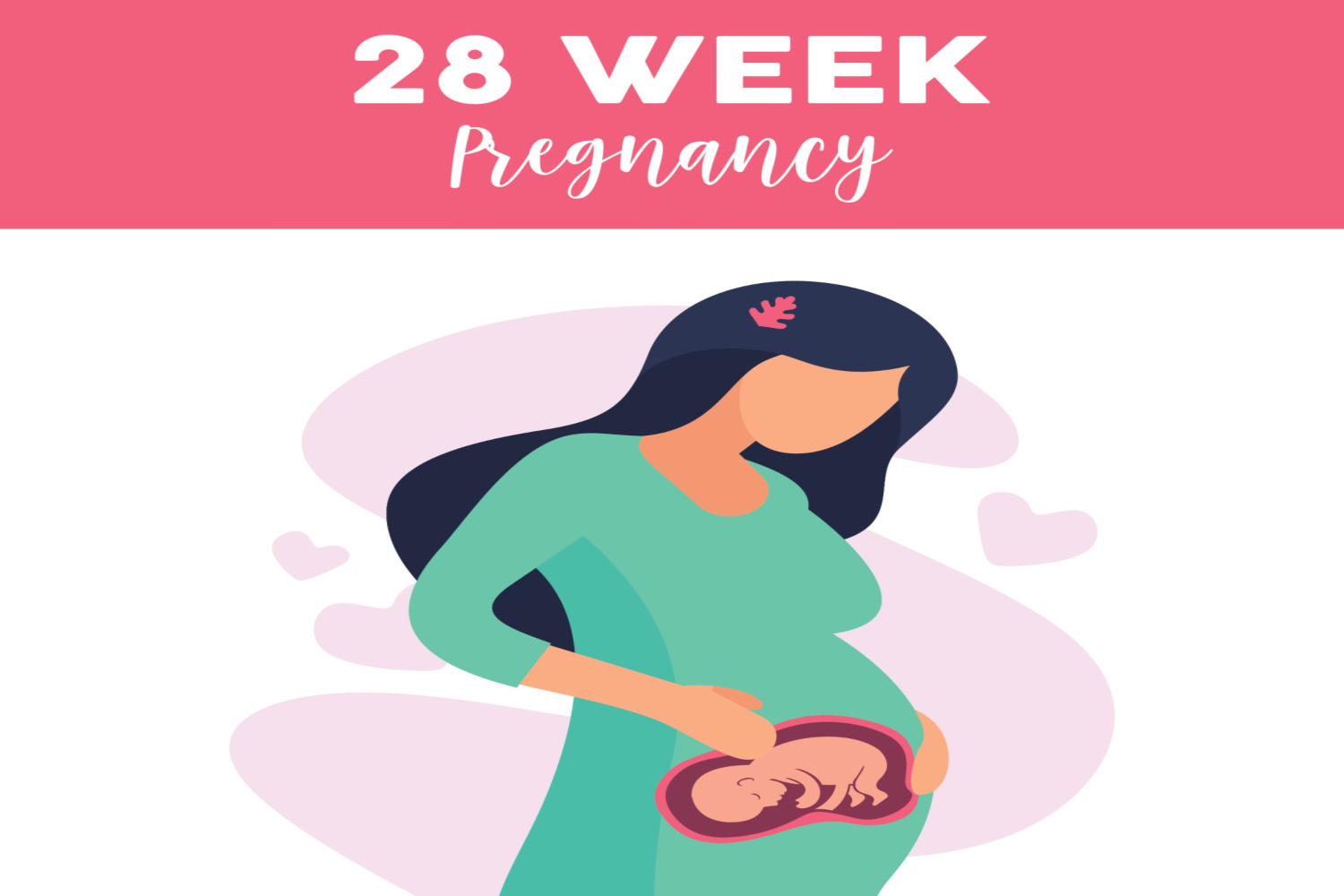
Welcome to the third and final trimester of pregnancy. All the symptoms you have experienced so far could worsen and make you feel more uncomfortable and tired during the upcoming weeks of pregnancy. Indigestion and heartburn have become regular visitors. Thanks to the little one, who is growing rapidly. Your back pain will increase due to the extra pounds you just put up. Your joints could become lighter, and you may notice that your ankles and feet are constantly swollen. Learn more about how does your body change during week 28 of pregnancy. Let us get started.
How Does Your Body Change During Week 28 of Pregnancy?
The following are the symptoms that your body might go through during week 28 of pregnancy. Let us discuss each of them in detail.
1. Shortness of Breath
During week 28 of pregnancy, shortness of breath is very common. It is often referred to as “dyspnea.” The pressure of the growing uterus is placed in the lungs and leads to shortness of breath. There is no single proven cause for shortness of breath. However, the increasing pregnancy hormones and uterus are the significant factors contributing to dyspnea.
During the third trimester, before the baby turns and drops into the pelvis, it is common for women to feel the diaphragm squeeze. This makes it hard to breathe. Along with pregnancy, if you have any other underlying medical conditions, you will likely experience shortness of breath. The other underlying medical conditions include the following:
- Asthma
- Peripartum Cardiomyopathy
- Pulmonary Embolism
What to do?
The shortness of breath during pregnancy could hamper the day-to-day activities of women. It is essential to talk to your doctor and discuss if you have any underlying conditions that could affect your breathing.
Though there are no treatments for dyspnea during pregnancy, you can follow specific tips to make breathing more comfortable.
- Practice good posture
- Use Pregnancy support belts
- Use pillows to support your upper back while sleeping
- Practice breathing technique
- Take a break and rest for a while.
2. Leaky Breasts
It is common for pregnant women to have leaky breasts. The breast may produce milk several weeks or months before your labor. If you notice a yellowish fluid leaking from your breast, it is commonly known as colostrum. Your body prepares the first milk to feed your little one.
Prolactin is a hormone that is responsible for milk production. It begins to start its job even before the labor. That is the reason why your breasts might be leaking.
What to do?
There is nothing to be worried about about leaky breasts. If you feel uncomfortable, you can use a tissue or a breast pad in your bra to absorb the milk.
3. Loss of bladder Control
As the uterus expands and a lot of pressure is placed on the bladder, there are high chances of urine incontinence or loss of bladder control. The bladder cannot control the urine passage. You might always have the urgency to urinate and frequently visit the bathroom.
One primary type of incontinence that pregnant women might face is stress incontinence. You will likely experience stress incontinence when you cough, do any physical activity, or laugh. Urine incontinence is prevalent during pregnancy. As the uterus expands and the body changes to accommodate the growing fetus, the bladder is under continuous pressure.
What to do?
The following are some tips to cope with bladder control issues:.
- Avoid caffeine and carbonated drinks.
- Limit the consumption of fluids after dinner time.
- Consume food that is rich in fiber to avoid constipation. Constipation could contribute to frequent urination leakage.
- Maintain a healthy diet and body weight.
4. Other Symptoms
There are a few other symptoms that you might experience in week 28 of pregnancy. They are,
- Braxton Hicks Contractions
- Frequent urination
- Sleeplessness
- Backpain
- Hemorrhoids
- Pelvic Pain
- Gas / Bloating
- Swelling / Water Retention
- Stretch Marks
The third trimester has just begun, and your body is now gearing up for the next phase of pregnancy. As your little one grows, the extra pressure put on the uterus can give you a lot of symptoms. Let us embrace the beauty of life within you.
Happy Pregnancy!
Read Also: How Does Your Body Change During Week 29 of Pregnancy?
